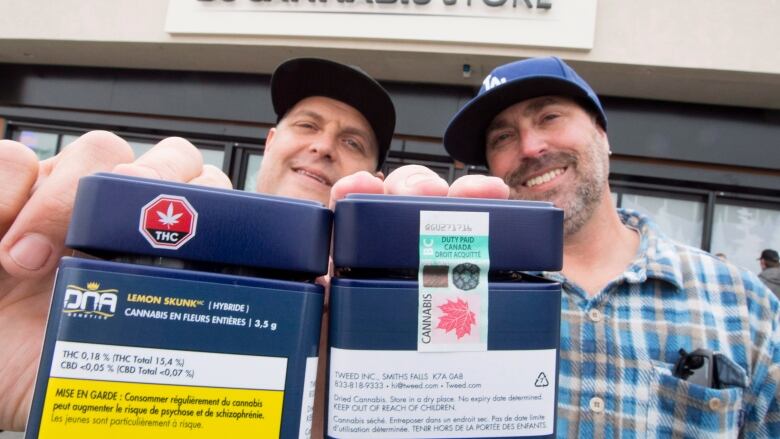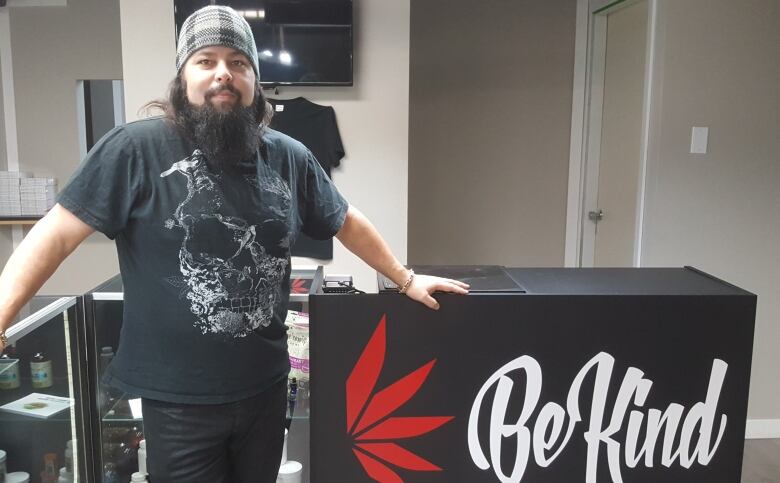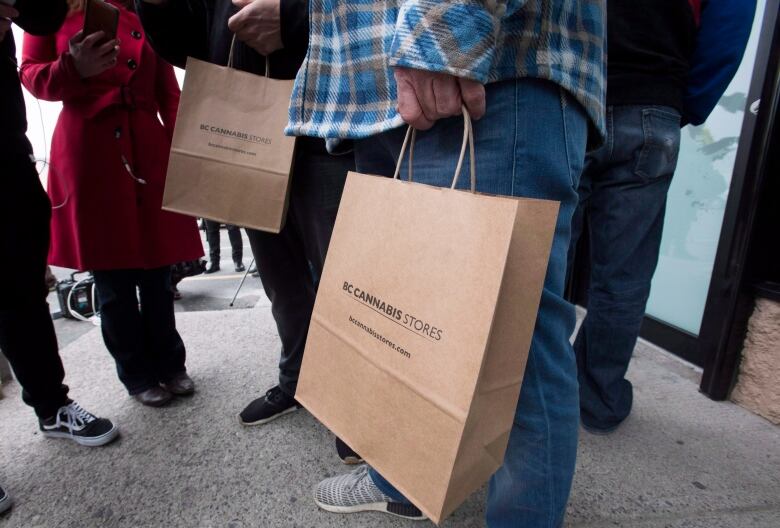A month into legalization, Alberta is blowing away B.C.'s claim as Canada's pot capital
Alberta is nearing 70 private retail licences, while B.C. has issued just 1 public and 1 private licence

B.C.'s reputation as Canada's pot capital is stuck in red tape, while Albertans next door roll freely from store to store.
One month into legalization, Alberta has issued nearly 70 private retail licences,while British Columbia has issued one to apublic retailer and another to a private store.
Bob Kay stopped selling marijuana from his Be Kind dispensary inKelowna after legalization on Oct. 17, as he awaited his licence to operate as a store.
Kayhopes to open four stores in the Okanagan but at the moment he's still waiting, unsure about the status of his application.
"I'm extremely frustrated," said Kay, who is still sellingaccessories at Be Kind.
"We always teach people, our children and even relationships and marriage, that communication is the key to all things but there hasn't been any communication.
"It's been 10 years we've been here ... telling the city and community to get ready, it'scoming. They're not ready."

Alberta experience
Waiting times can vary from city to city. Kelowna says it doesn't expect to approve any local stores until spring 2019, whereas other municipalitieslike Kamloops are already approving stores.
B.C.'s Ministry of the Attorney General says the province's overall lag is due in part to local government being heavily involved in the process, with some communities delaying applications until after the recent civic elections.
Also, B.C. didn't begin accepting applications until August while Alberta was already reviewing them in March.
That earlierstart helped Chris Weber in Medicine Hat, Alta., prepare his shop for legalization on Oct.17.
Weber quit a 25-year career in the road-building industrylast Christmas to set up his store, called The Green Exchange.
"I've been building roads my whole life, and I just never went back," he said.

The process required Weber's full-time commitment, with the application form alone running to 70 pages.
"There was a lot of paperwork. A lot of going back and forth with AGLC[Alberta Gaming, Liquor and Cannabis] and to lawyers and accountants and what not so, yeah,sure learned how to use a computer."
The upshot is that business for Weber hassettled at a steady pace of more than 100 customers a day, he says.
However, Alberta hasn't been immune to the nationwide supply shortages of cannabis, and the AGLCsays it's been diverting much of its supply away from online sales and offering it to retail outlets, to tryto compensate.
Packaging panned
B.C.'s only currently-operating private retailer says oncemorestoresare licensed, business should be steady.
But Tamarack Cannabis Boutique in Kimberley, B.C., which had a lineup on its first day, is reporting another perceived downside of legalization.
Owner Tamara Duggan says her customers, who are from all walks of life, have beensurprised by the volume of packaging involved with any legal purchase.
Health Canada mandates that cannabis "be packaged in an immediate container that is tamper-evident, child-resistant, prevents contamination and keeps cannabis dry."
That means that loose marijuana is generally sold in a plastic-sealedbottle inside a cardboard box that also containsan information sheet and thishas led to complaints of unnecessary waste.
"Many, many times every single day, it's like, 'What is going on here, and why is this necessary?'" said Duggan, referring to customers' comments about packaging.
"Say, a year from now, I hope what the product looks like is significantly smaller than what we're dealing with right now."
A year from now, Bob Kay just hopes to be in business. He can't quite believe that it's now easier to buy pot one province over than it is in the land ofB.C. bud.
"Alberta, eh," he says."Who would have thought?"












_(720p).jpg)


 OFFICIAL HD MUSIC VIDEO.jpg)
.jpg)



























































































